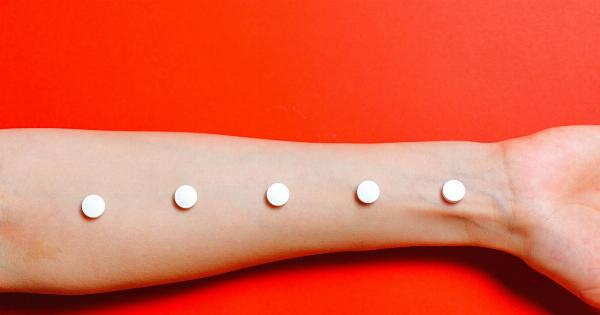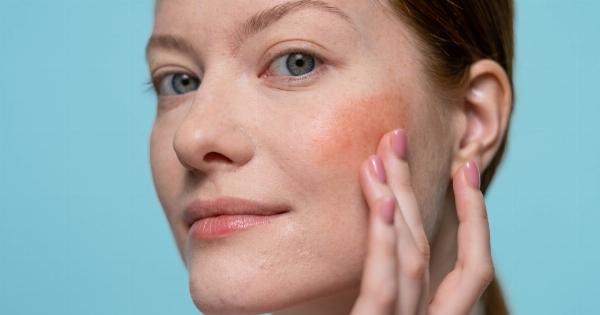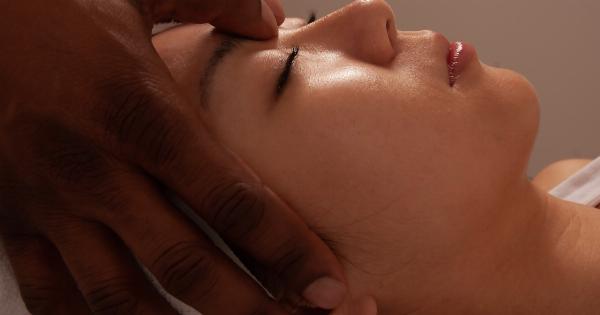We’ve all experienced that maddening itch at some point in our lives. Whether it’s a mosquito bite, a rash, or a skin condition, the urge to scratch can be unbearable.
But what happens when your skin starts to “eat” you? It may sound like something out of a horror movie, but there are rare cases where the skin can become so irritated that it begins to literally consume itself. In this article, we will explore this strange phenomenon, its possible causes, and most importantly, what you can do to find relief.
Understanding the Skin’s Functions
Before delving into the depths of skin conditions that cause this intense itching, let’s take a moment to understand the basic functions of our skin.
The skin is the largest organ of the human body and serves as a protective barrier against external factors such as bacteria, viruses, and UV radiation. It also regulates body temperature, stores water and fat, and provides us with the sense of touch.
The outermost layer of the skin, called the epidermis, is comprised of dead skin cells that are continuously shed and replaced. The layer beneath the epidermis, known as the dermis, contains sweat glands, hair follicles, blood vessels, and nerves.
These components work together to keep our skin healthy and functioning properly.
When the Itching Begins
Itching, also known as pruritus, is a common symptom that can indicate various underlying skin conditions or allergies. In most cases, itching is a temporary annoyance and can be easily alleviated by scratching or applying topical remedies.
However, when the itch becomes persistent, severe, and leads to damage of the skin, it may be a sign of a more serious problem.
Eczema: The Itch That Won’t Quit
Eczema, also referred to as atopic dermatitis, is a chronic condition that affects millions of people worldwide. It is characterized by dry, itchy, and inflamed skin. Eczema can occur at any age but is most commonly diagnosed in children.
The exact cause of eczema is unknown, but it is believed to be a combination of genetic and environmental factors.
People with eczema often experience intense itching that can lead to scratching. Unfortunately, this scratching can disrupt the skin’s protective barrier, increasing the risk of infection and exacerbating the condition.
To manage eczema-related itching, it is essential to keep the skin moisturized, avoid triggers such as certain fabrics or harsh soaps, and use medications prescribed by a healthcare professional.
Psoriasis: When Skin Cells Multiply
Psoriasis is another chronic skin condition that causes the skin cells to multiply at an accelerated rate. This rapid cell turnover leads to the formation of thick, red patches covered with silvery scales.
Although psoriasis is not contagious, the accompanying itchiness can be relentless and extremely bothersome.
Treatment options for psoriasis focus on reducing inflammation and scaling, as well as soothing the itching sensation. Topical creams containing corticosteroids, moisturizers, and coal tar preparations are commonly used.
In more severe cases, oral or injectable medications, light therapy, or even biologic drugs may be recommended.
Prurigo Nodularis: The Never-Ending Cycle
Prurigo nodularis is a skin condition characterized by the presence of itchy, hard bumps on the skin. These nodules can range in size from small papules to large plaques and are often a result of persistent scratching or rubbing.
The itch-scratch cycle is a hallmark of prurigo nodularis, making it challenging to break free from the irritation.
Treatment for prurigo nodularis involves addressing the underlying cause of the itching, which may include allergies, eczema, or other skin conditions.
Additionally, medications such as antihistamines, topical corticosteroids, or even antidepressants can be prescribed to alleviate symptoms and help control the itch-scratch cycle.
Relieving the Itch – Home Remedies and Medical Options
When your skin starts to “eat” you, finding relief becomes a top priority. Here are some tips and remedies that can help alleviate itching caused by various skin conditions:.
1. Moisturize Regularly
Keeping your skin well-hydrated is crucial in minimizing itchiness. Apply a moisturizer immediately after showering or bathing to lock in the moisture and keep your skin hydrated throughout the day.
2. Avoid Triggers
If you know what triggers your itching, take steps to avoid those triggers as much as possible. This may include using hypoallergenic laundry detergents, wearing breathable fabrics, and staying away from known allergens.
3. Cool Compress
Applying a cool compress to the itchy area can help reduce inflammation and soothe the skin. Use a clean cloth soaked in cold water or try an over-the-counter hydrocortisone cream for additional relief.
4. Over-the-Counter Anti-Itch Creams
Pharmacy shelves are stocked with various anti-itch creams and ointments containing ingredients like hydrocortisone, calamine, or diphenhydramine. These products can provide temporary relief from itching.
5. Oral Antihistamines
For severe itching that disrupts your sleep or daily activities, oral antihistamines may be recommended by your doctor. These medications can help alleviate itchiness and promote better rest.
6. Prescription Treatments
In cases where home remedies and over-the-counter options do not provide sufficient relief, seeking medical advice from a dermatologist is crucial.
They may prescribe stronger topical creams, oral medications, or other treatments to target the underlying cause of the intense itching.
When to Seek Medical Help
While occasional itching is usually nothing to be concerned about, certain situations warrant a visit to your healthcare provider:.
1. Intense and Prolonged Itching
If the itching persists for more than a couple of weeks and is not relieved by over-the-counter remedies, it’s time to consult a professional. They can assist in determining the underlying cause and providing appropriate treatment options.
2. Changes in Skin Appearance
If the itching is accompanied by visible changes in your skin, such as discoloration, swelling, or the formation of blisters, it is essential to seek medical attention.
These changes could indicate an infection or a more serious condition that requires prompt treatment.
3. Worsening Symptoms
If the itching intensifies, spreads to other areas of the body, or is accompanied by other concerning symptoms such as fever, unexplained weight loss, or fatigue, it is imperative to schedule a medical evaluation to rule out any underlying illnesses.
Conclusion
When your skin starts to “eat” you, it can be frustrating and distressing. However, with proper understanding and knowledge, you can take control of the situation.
By identifying the underlying cause of the itch and implementing appropriate remedies, you can find relief and prevent further damage to your skin. Remember, if your symptoms persist or worsen, it is always best to seek professional medical advice.





























